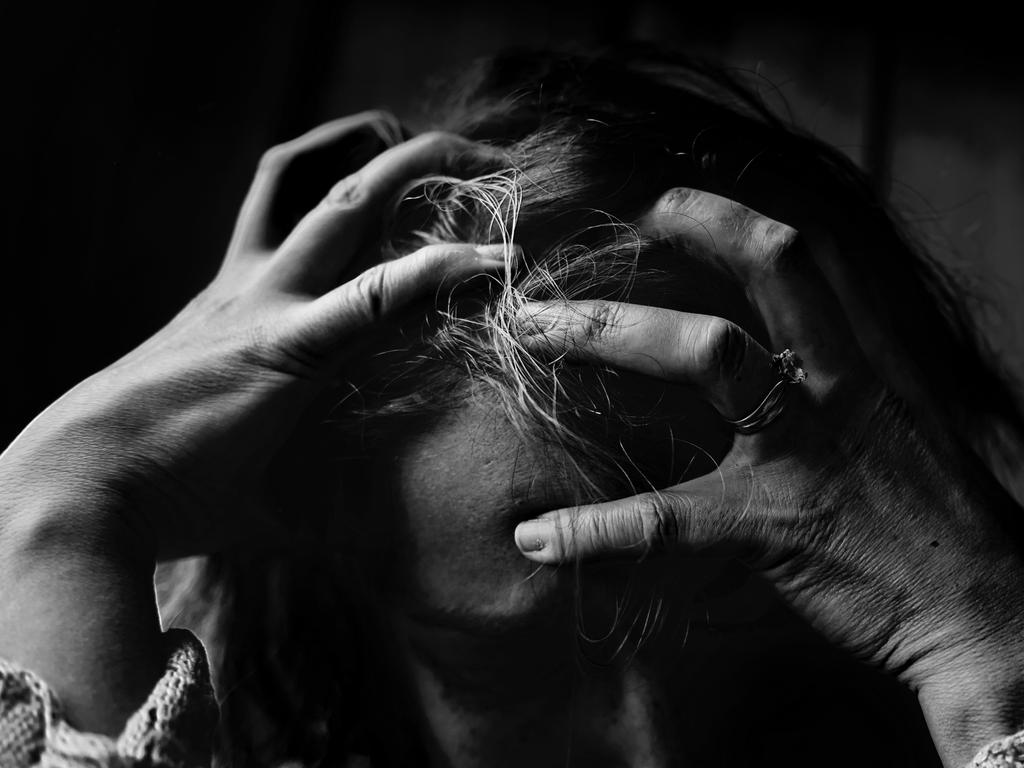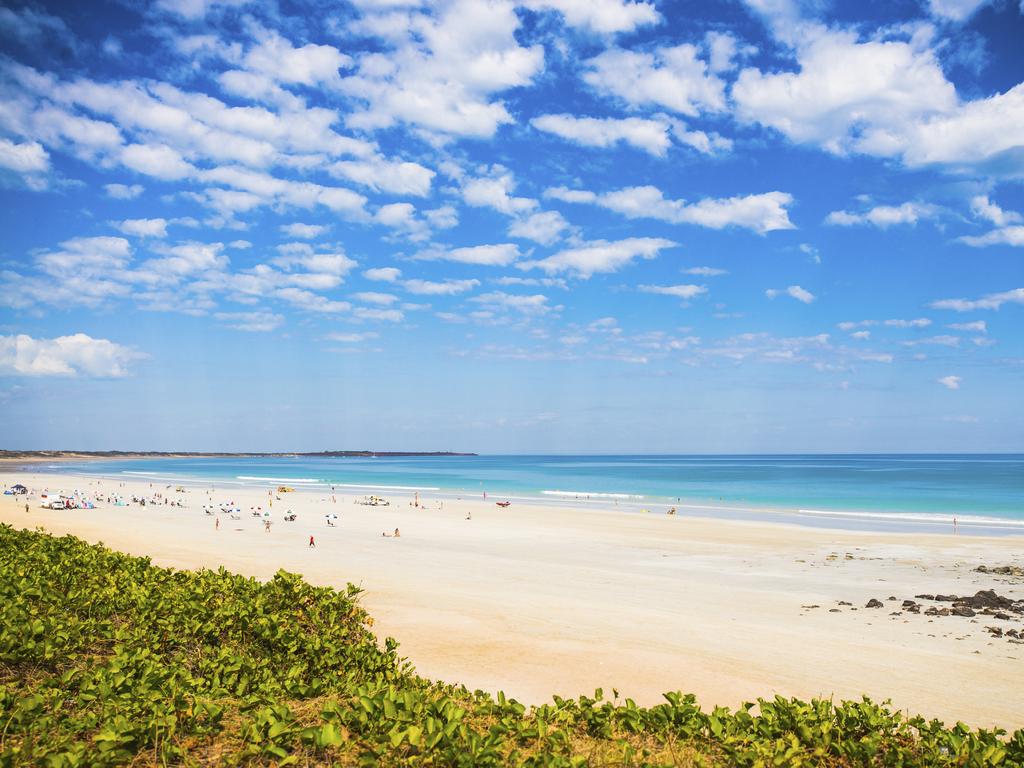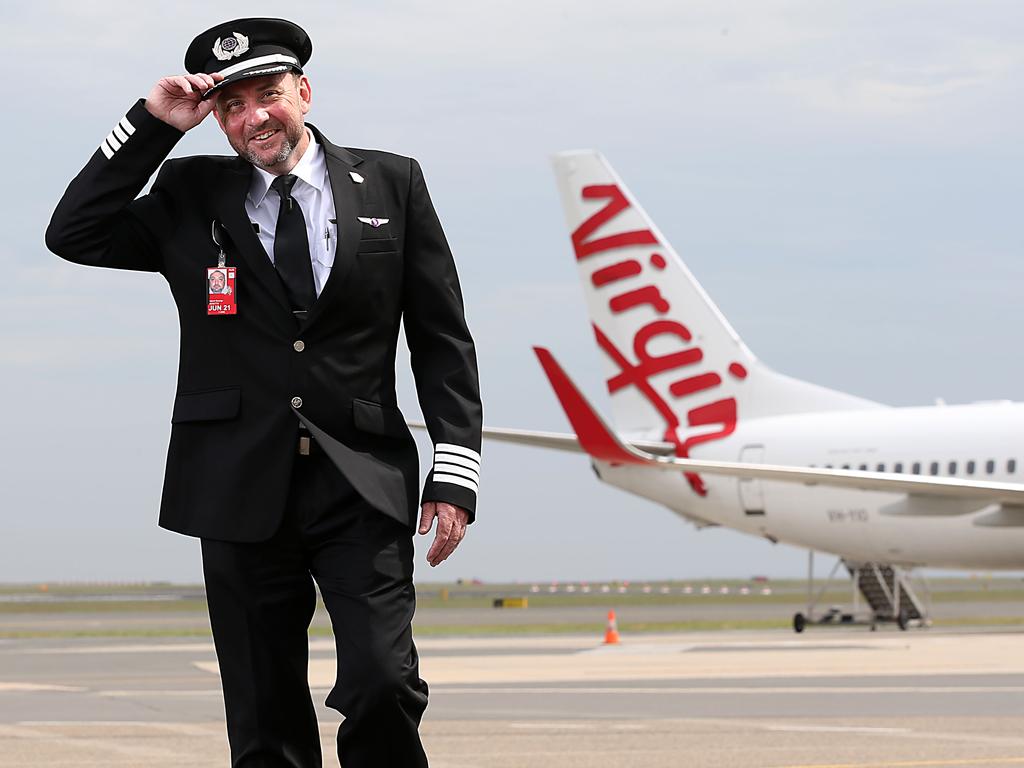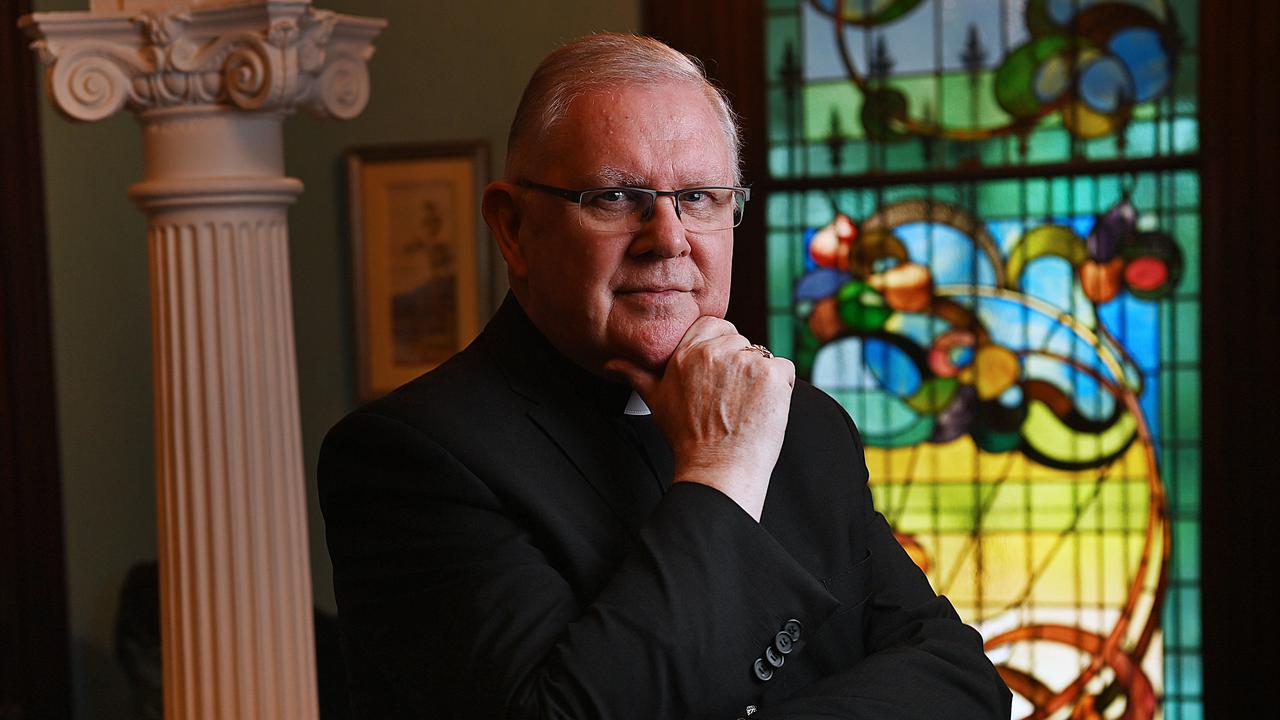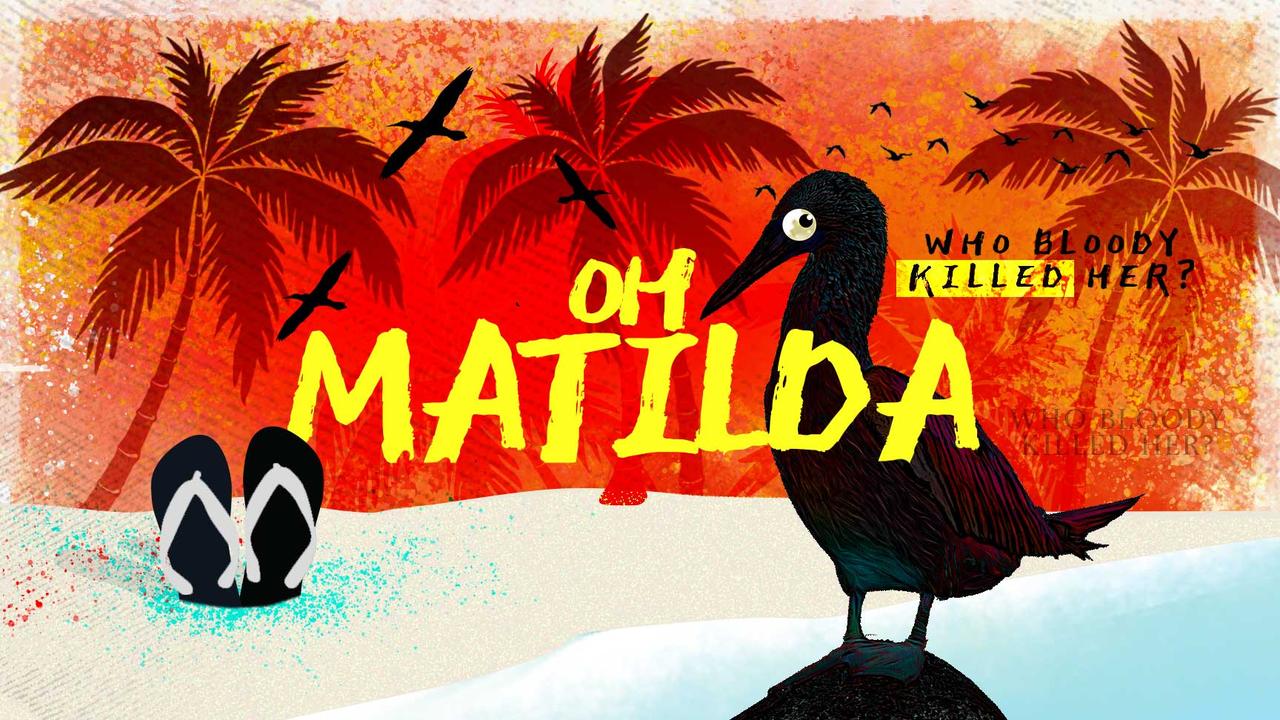From ‘a better life’ to a brutal death
Queensland’s African community has never seen anything like the spate of three connected acts of extreme violence in the space of weeks.
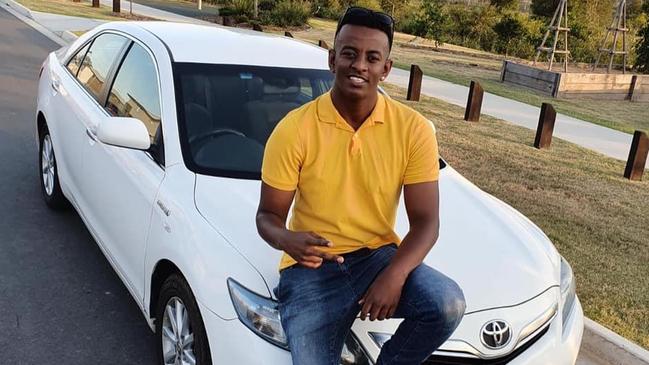
It’s not much to show for a life.
At the sprawling, interconnected O’Callaghan Park sporting fields in Brisbane’s north, withered flowers and a couple of unopened beers are now the only reminders of the lethal, one-sided battle that happened here.
Ten weeks ago, a group of young friends were playing cards and enjoying beers on a Sunday afternoon when they were allegedly ambushed by men armed with machetes, baseball bats and kitchen knives.
In the alleged free-for-all attack that followed, Girum Mekonnen, a locally educated 19-year-old who dreamt of returning to his native Ethiopia to run a business, was stabbed several times and died on the spot. It was one of three connected acts of extreme violence in the space of a few weeks.
In each, both the perpetrators and victims were young and of African descent, and the consequences were severe.
Thirteen young men are now facing life imprisonment after being charged with Mekonnen’s murder, and at least 10 others are facing separate, serious criminal charges over the other incidents.
It’s a significant toll on the families who came to Australia to pursue better opportunities for their children, only to see them hurt, locked up — or, in the case of Mekonnen, dead.
Beny Bol, president of the Queensland African Communities Council, looks back and observes a common thread.
“Most of those children involved in these sort of things are either born in Australia or they came here when they were very, very young, probably two or three years old,” Bol says.
“Anybody who came here when they were … teenagers, they’re doing extremely well.
“Most of these kids (in trouble) are Australian.
“It is a failure within the Australian system – whether that’s family or community or the government service industries, it’s a failure within this country.”
Queensland’s large and diverse African community, with many success stories, had never seen anything like those attacks.
How to stop them happening again is now a key priority for Bol, a former refugee from South Sudan who has been in constant contact with affected families.
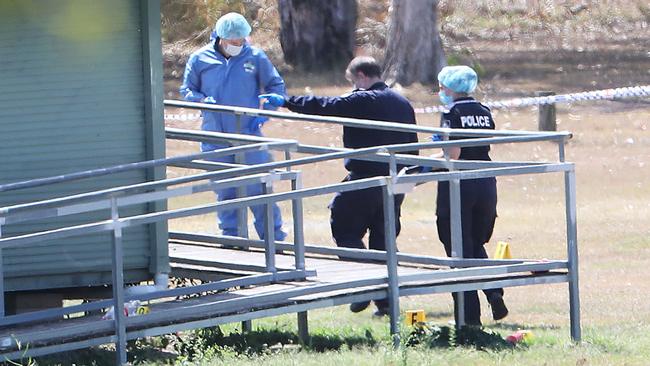
‘Hopelessly exposed’
The incident police allege led to the O’Callaghan Park tragedy happened five days earlier and almost 45km away, at the Town Square shopping centre at Redbank Plains in Ipswich, west of Brisbane.
At 8.30pm on Tuesday, September 8, startled shoppers and workers watched as a group of youths savagely bashed 21-year-old John Wal with baseball bats.
“He was trying to get into the Woolworths,” a witness tells The Australian. “He just couldn’t get in – the automatic doors didn’t open quickly enough.”
Wal’s family arrived in Australia from Sudan as refugees around 2003, when he was about four, court documents show.
Why he was attacked remains unknown, but police allege Wal’s relatives and friends came to believe they knew who was involved.
Police say there are a series of location-based alliances – groups from the north, south and Ipswich or “Swish”. Some are known to be engaging in violent anti-social behaviour and property offending.
Wal’s family, from Ipswich, blamed people from Brisbane’s north, police allege.
On Sunday, September 13, three carloads of men allegedly travelled in convoy from Redbank Plains to O’Callaghan Park in Zillmere, on Brisbane’s northern outskirts.
Among them, police allege, were all four of Wal’s brothers: Yohana, 19, Kresto, 24, Gabreal, 27, and Santo, 32.
Rose Mabior and Ayuong Awan were the only two women in a group of more than a dozen friends attacked at Zillmere.
They would tell police – in statements obtained by The Australian — of the shock at recognising a family friend, a former schoolmate and acquaintances among the men who ambushed them.
Mabior and Awan said they had spent the day on the deck of a green building resembling a tuckshop, next to a baseball field. They called it “the Zoo”.
It was a few minutes’ walk from the North Star Football Club carpark and would leave them hopelessly exposed.
As they listened to music, played cards and shared cartons of Coronas and Great Northerns and bottles of Canadian Club whisky, one of them posted a video on Snapchat. It may have led their attackers straight to them.
Mabior said at about 5.20pm, one of the friends went to use the toilet. He returned almost immediately. “Guys, run,” he yelled.
There was no time to react. Mabior said the attacking group appeared from both sides of the building, surrounding her own group. One of the men had a fluoro-green mask but she told the police she recognised him as someone who lived in the street behind hers, Alex Deng.
He was allegedly leaning against a baseball bat and she only saw him watching.
“I have known Alex for about seven or eight years. Alex comes to my house quite often,” she said.
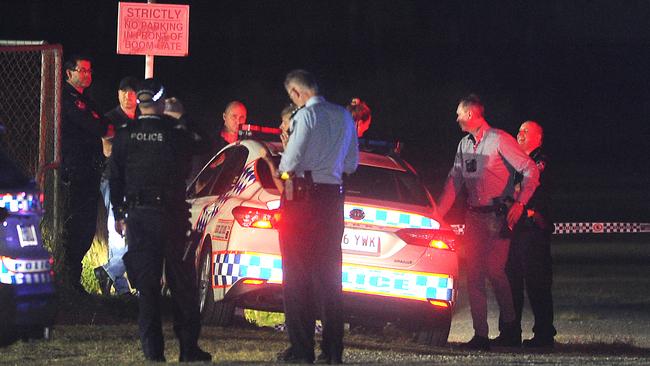
‘This is for my brother’
The next day, Deng jumped her fence and asked what happened. “Don’t act like you don’t know, you were there,” she replied. Both Mabior and Awan claimed in a police statement they recognised one of the men as a Wal brother they knew as “Junior”. “Junior was holding something long, possibly a machete or a long knife,” Mabior said. “I have known Junior for about 10 years. I have been to his house before.”
She was struck two or three times with a baseball bat, but did not know who by. During it all, someone yelled: “This is for my brother.”
Awan, a lab assistant, said Junior recognised her and waved for her to go. Another man she had known since childhood, Joseph Lokolong, was wearing a COVID-style face mask, she said.
“I could clearly see Joseph’s eyes and knew it was him. Joseph had a bat in his hand and was holding it down next to his leg,” Awan said in his police statement.
She too said she recognised Alex Deng; they had gone to primary school together.
Kresto Wal was holding a bat or a machete and was so close she could see the gap between his teeth, she said. “He (Kresto) had what I describe as had an evil smile on his face. It was like he thought what was happening was funny.”
Eleven of the 12 victims were taken to hospital; among them brothers Ronal and Rami Eresto, who live next to the park. Ronal was stabbed in the abdomen and Rami was struck in the head with a bat.
Their mother, Viola Ladu, came running. Outside a Brisbane court last week, she said she moved to Australia from South Sudan as a single mother of three “for a better life”. She was at court seeking answers, saying she didn’t understand why the attack happened.
Her sons spoke to The Australian at home from behind a screen door. Both said they were fine.
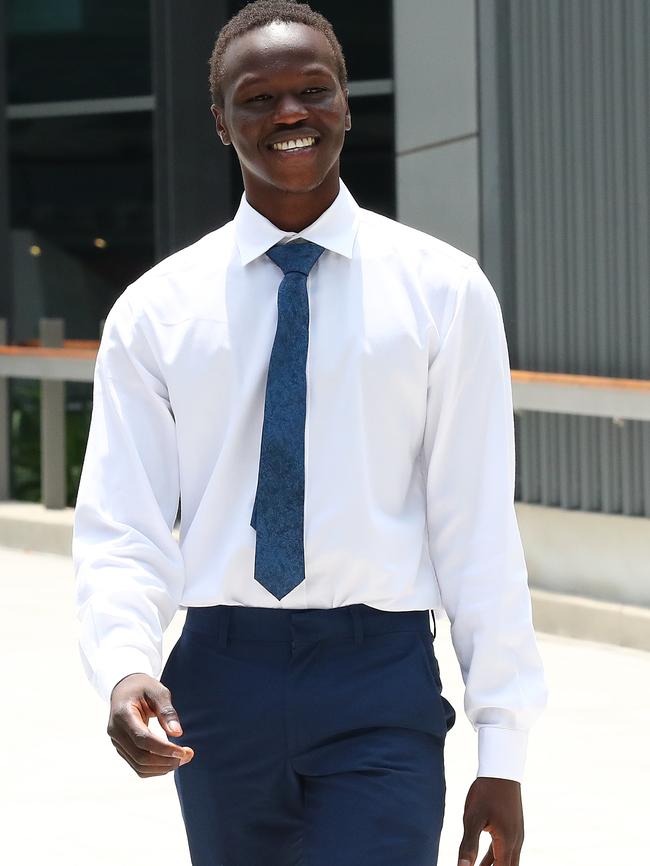
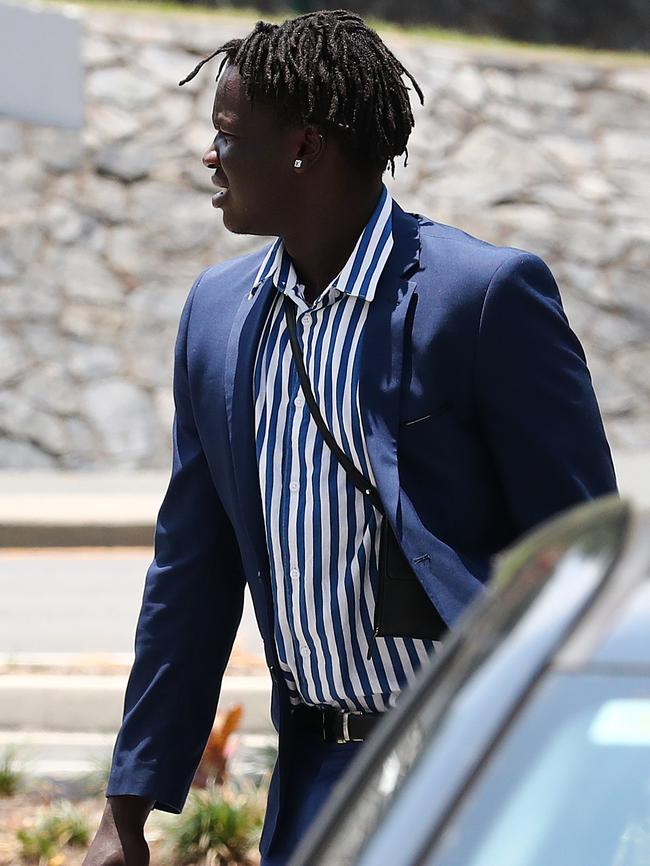
“I don’t like really talking about it to anyone, even the officers,” Ronal said.
“What’s happened has happened, you just move forward and try not to think about it, otherwise it just f..ks with my head.”
Police allege it was a frenzied attack; victims beaten with bats before being chased down and stabbed. Mekonnen, dressed casually in torn denim jeans, T-shirt and Timberland boots, allegedly died from a fatal wound to the abdomen.
In a video recorded just a couple of months earlier, the former Kedron State High School student had said his goal in five years was to have a business in Ethiopia “and most importantly move over there and help my family out”.
Investigating officer Kerrin Raymont said in bail documents that “there was a great propensity for further deaths … It was only luck more vital organs and arteries were not struck”.
Despite fears it would be a protracted investigation, detectives made arrests within days. Court documents reveal they were able to do this through witness statements, CCTV footage and by tracking phones as the group moved from Ipswich to the attack area and back.
Clem 7 and Legacy Way tunnel footage allegedly captured the three-car convoy, matching phone movements.
John Wal, whose bashing allegedly sparked the fatal attack, was still in hospital and was not involved. But police laid murder charges against his four brothers and against co-accused Deng, 18, Lokolong, 24, Anas Musa, 19, Majok Riel Majok, 18, Juma Makuol, 23, Chan Kon, 24, Ben Abio, 19, Abraham Yak, 26, and Malat Makuach, 21.
Fatal blow?
Police still do not know who struck the blow that killed Mekonnen and, in the law’s eyes, it does not necessarily matter.
Lawyer Bill Potts said when people act in concert and it results in death, everyone can be held responsible; the same goes for anyone who “aids, abets, assists, enables or procures” an offence.
“If it is contemplated or reasonably foreseeable, then that is murder,” Potts said.
John Wal’s family and friends also appear to have blamed the wrong people – police say there is no evidence the Zillmere victims attacked him.
Just over a week after the Zillmere attack, police charged three Ipswich teenagers and one from Yeronga in Brisbane’s south with John Wal’s bashing – none were at O’Callaghan Park.
Australian generation
The violence rolled on. On October 4, 21-year-old Charles Amalu was leaving a soccer tournament organised by the African community at Acacia Ridge in Brisbane’s south when 15 men surrounded him. Amalu was punched in the head and body and struck in the face with a hammer.
Police allege the first person to swing a punch was Liec Manyang, one of the Zillmere victims. Manyang and five other men have been charged with acts intending to cause grievous bodily harm.
Police were so concerned about reprisals they listed in court documents dummy, non-existent home addresses for family members.
Speculating about the factors contributing to the attacks, community leader Bol warns that sophisticated criminal networks connected to the drug trade or other illegal activity may be targeting at-risk young people.
He says there needs to be early intervention, including at schools, before things get out of control.
Rehabilitation for those already in the justice system was needed, so “when they return to the communities they’re not offending or influencing others or trapped in the same cycle of offending”.
“Any decent person would focus on the way to help people,” Bol says. “If there’s a vulnerable person or group of people in the community, then I would expect people to come together and find a way to help each other. That’s how those families find themselves in Australia, because there have been generous people and governments helping refugees.”
Criminologist and former refugee Elijah Buol said the rise in anti-social behaviour was linked to a new generation who grew up in Australia.
The African community wanted to engage with younger generations to find solutions, Buol said.
“That’s what we as a community are trying to find out – who is actually influencing them, why are they doing it,” he said. “Some of them are too young to commit those big crimes. It’s something the community is saying – why is there a rise of this anti-social behaviour happening that was not there previously? Because we had a good, quiet time in Queensland without things like this.”
The building known as “the Zoo” has been knocked down, leaving only the makeshift shrine of flowers.


